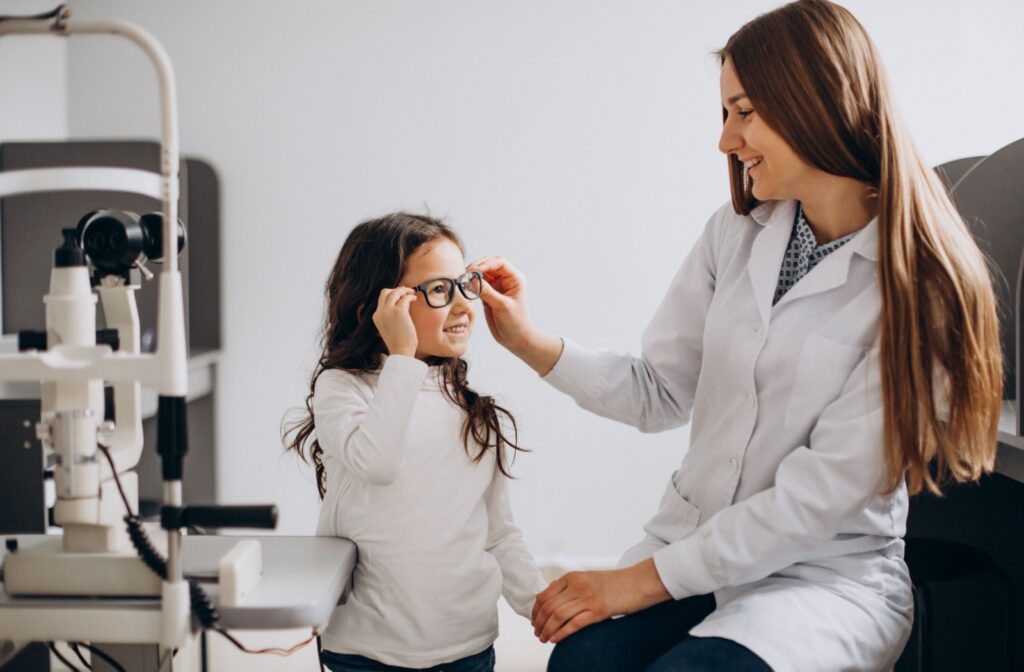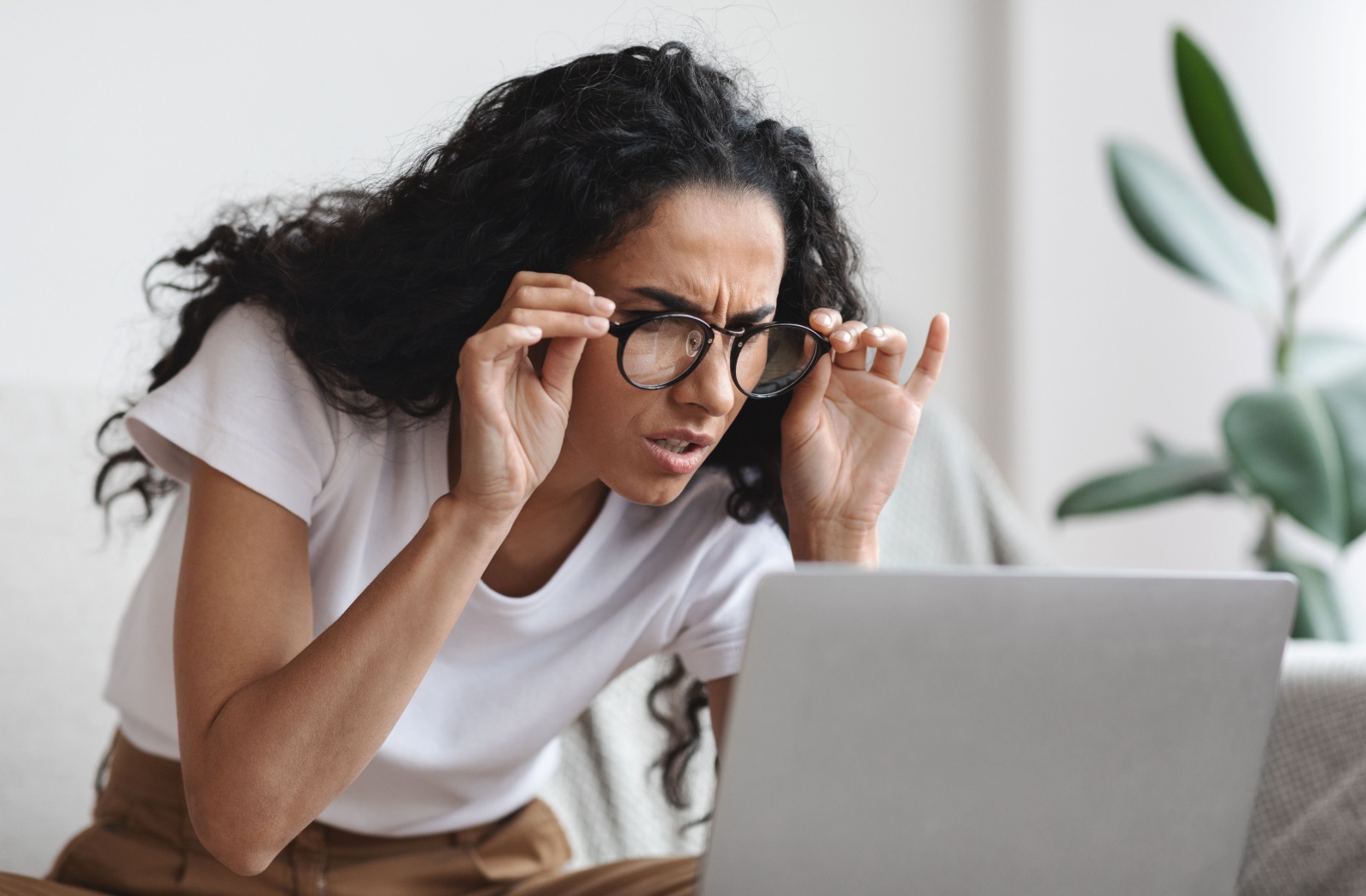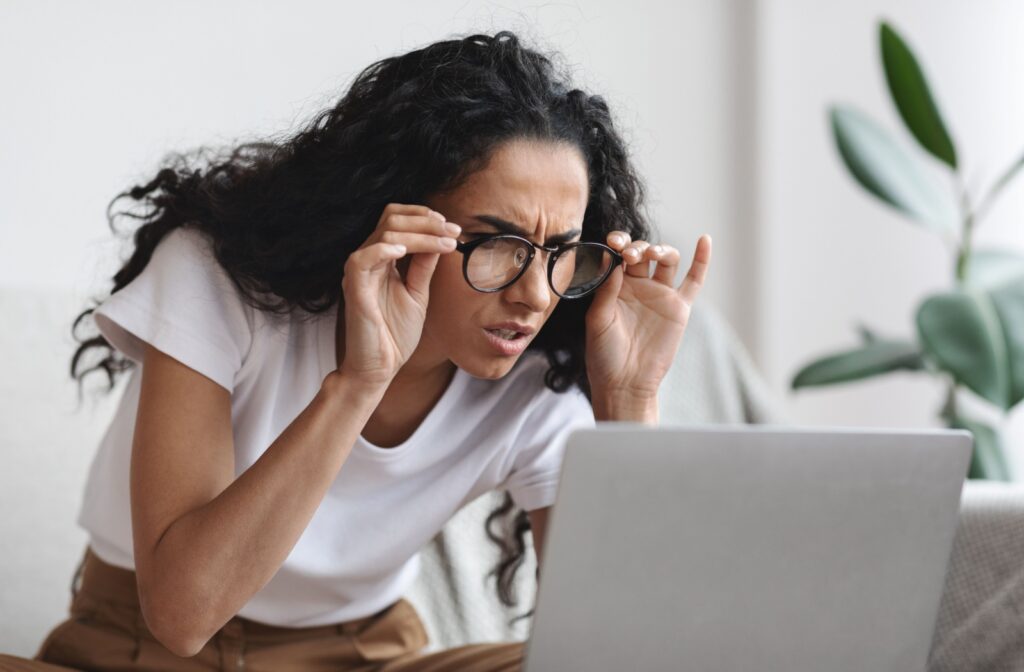Myopia, commonly referred to as nearsightedness, affects millions of people worldwide. It makes distant objects appear blurry, often requiring glasses or contact lenses for clear vision. But a question many of our patients ask is, “Can myopia be reversed?”
While the short answer is no, myopia can’t be reversed in the traditional sense, there are effective treatments, lifestyle adjustments, and research that offer promising ways to manage, control, and even slow its progression.
Understanding Myopia
Before exploring reversal methods, it helps to understand what causes myopia. Myopia develops when the eyeball grows too long or when the cornea is too curved. This causes light entering the eye to focus in front of the retina rather than directly on it, resulting in blurry vision for distant objects.
Myopia often starts in childhood and progresses through the teenage years. While genetics play a significant role, modern lifestyle factors—like increased screen time, lack of outdoor activity, and excessive near work—also contribute to its development.
Is Myopia Reversible?
Currently, there’s no treatment to reverse myopia completely. Once the eye has grown into a myopic shape, that structural change cannot be undone. However, there is good news. Advances in eye care have provided ways to slow myopia progression, prevent it from worsening, and even reduce dependency on corrective lenses.
While we may not be able to reverse myopia, focusing on managing it effectively can improve your quality of life and minimize long-term risks.

Treatment Options for Myopia Management
At The Eye Avenue, we take a personalized, patient-centered approach to myopia treatment. Every individual’s needs are different, and the best course of action depends on factors like age, lifestyle, and the severity of the condition. Here are some of the most effective options:
Orthokeratology (Ortho-K)
Ortho-k uses specially designed rigid gas-permeable contact lenses to temporarily reshape the cornea. These lenses are typically worn overnight, allowing patients to experience clear vision during the day without the need for glasses or contacts. While it doesn’t reverse myopia, ortho-k is particularly effective at controlling its progression in children.
Atropine Eye Drops
Low-dose atropine eye drops are a clinically proven treatment to slow myopia progression in children. Atropine relaxes the eye’s focusing mechanisms and has shown excellent results in reducing the rate of progression, especially when combined with other management strategies.
Multifocal Contact Lenses
Multifocal contact lenses typically address age-related presbyopia, but they’ve also proven effective in slowing myopia progression in children. These lenses distribute light differently across the retina, which may help reduce strain and prevent further elongation of the eyeball.
Laser Eye Surgery
For adults with stabilized myopia, refractive surgeries like LASIK can reshape the cornea to improve vision. While this doesn’t “reverse” myopia, it eliminates the immediate need for corrective lenses in many cases. However, it’s crucial to consult an experienced optometrist or ophthalmologist to determine if you’re a candidate for this procedure.
Lifestyle Changes That Can Help
Prevention and control aren’t limited to clinical treatments. Making simple lifestyle adjustments can positively impact your eye health and help manage myopia more effectively.
Spend More Time Outdoors
Numerous studies show that spending time outdoors reduces the risk of developing myopia in children and slows its progression. Exposure to natural light and focusing on objects at varying distances both play a role in promoting eye health.
Practice the 20-20-20 Rule
Digital devices and constant near work can strain your eyes, leading to further issues. The 20-20-20 rule is a simple way to combat this. Every 20 minutes, look at an object 20 feet away for at least 20 seconds to give your eyes a break.
Limit Screen Time
Encourage balanced device use and take regular breaks to reduce eye strain. For children, it’s especially important to avoid prolonged screen time and encourage outdoor play instead.
Encourage Proper Ergonomics
When reading, studying, or using a computer, ensure proper lighting, maintain an adequate reading distance, and sit in an ergonomic posture. These habits can reduce eye strain and support long-term vision health.
The Future of Myopia Research
The good news is that the field of myopia research is advancing rapidly. From innovative optical devices to genetic therapies, researchers are exploring ways to better manage and potentially reduce myopia in the coming years.
At The Eye Avenue, we stay up to date on the latest advancements to help us provide our patients with the best care possible. It’s part of our commitment to offering innovative solutions tailored to your needs.
Start Myopia Management Today
While reversing myopia isn’t currently possible, managing and slowing its progression is well within reach. By combining clinical treatments, healthy habits, and professional care, you can protect your vision and enjoy a better quality of life. If you have questions about myopia management or want to explore options for you or your family, our team at The Eye Avenue is here to help. Book an appointment with our experienced optometrists today and take the first step toward better eye health.




